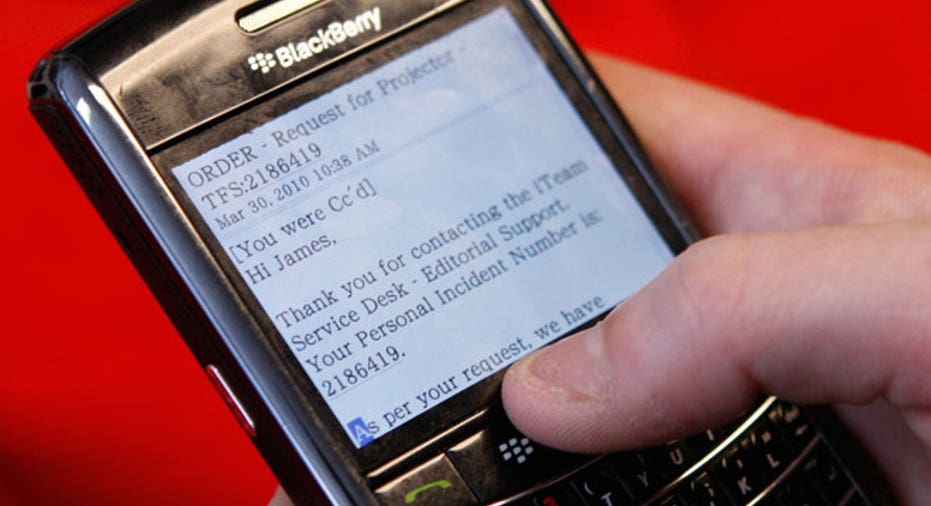What Will it Take to Pry Your Cell Phone Away?

Ban all cell phone use on the highways? Good luck with that.
Drivers are not only talking and texting more than ever, they're surfing the Web as well. Penalties are inconsistent from state to state. And the impact of a cell phone ticket on your car insurance rates ranges from mild to none.
Not to mention that a singalong with the radio and a hands-free cell phone conversation look pretty much identical.
A recommendation Dec. 13 from the powerful National Transportation Safety Board (NTSB) would ban all in-car phone use, including hands-free devices, for all drivers. It cited a number of deadly crashes but singled out a deadly pileup last year near Gray Summit, Mo., caused by a teen who sent or received 11 text messages just before he rear-ended a tractor-trailer.
Virtually everyone agrees distracted driving is a problem. Thirty-five states and the District of Columbia ban texting while driving, and nine states and Washington, D.C., ban hand-held cell phone use. Thirty states ban all cell phone use for beginning drivers.
But no states ban the use of hands-free devices, such as Bluetooth, for all drivers. A complete ban on phone use is widely seen as impossible to enforce. And certainly, under current conditions, the likelihood and consequences of a ticket are deterring few drivers.
Would higher car insurance rates get your attention?
Law enforcement is certainly writing more tickets. In 2009, for example, the California Highway Patrol wrote 1,772 citations for texting. Through mid-December 2011, it had written 7,132.
Holding a phone to your ear while driving has been illegal in Nevada since October. Starting Jan. 1, officers will be able to write tickets. Trooper Chuck Allen of the Nevada Highway Patrol says he sees people holding their cell phones every time he drives, even when he's off-duty.
"It's going to be a huge habit to change," he says.
Nevada fines violators $50 for a first offense, $100 for a second, and $250 for a third offense, with the fees doubling in construction zones. The first ticket isn't reported to insurers, but subsequent tickets are minor moving violations. Along with the fear of accidents, Allen thinks the possible effects on insurance are a big deterrent.
"That's the No. 1 factor for most motorists," he says.
Of course, an auto insurance company can only review what makes it to a driver's motor vehicle record. In several states, cell phone tickets are treated like parking tickets; they don't accrue penalty points. Other states, like Nevada, forgive a first offense. And some, like New York, levy multiple points even on the first offense.
Using a cell phone while driving shouldn't rise to the level of a major violation such as drunken driving partly because drunken drivers are impaired for their entire trip, while cell phone impairment only lasts as long as the driver uses the phone, says Bill Windsor, associate vice president of consumer safety at Nationwide Mutual Insurance Co.
"All they have to do is put down the phone and they can focus again on driving," Windsor says.
Where does distraction start?
Singling out electronic devices ignores the fact that there are other distractions in a car, such as tuning a radio, says Russ Rader, a spokesperson for the Insurance Institute for Highway Safety (IIHS).
A recent State Farm survey found more than one-third of drivers under age 30 had updated their social network status while driving.
"People have driven distracted since people have been driving," Rader says. "Even if you got everybody off their phone, you wouldn't end distracted driving."
Instead, more crash-avoidance technology is needed to help drivers, Rader says. He cites examples such as automatic braking when one car gets too close to another, and lane-departure warning systems.
While the IIHS doesn't have a position on proposed laws to ban cell-phone use in cars, policymakers shouldn't expect bans to have a big payoff, he says. The group's analysis of auto insurance claims data showed no decline in crashes after bans were enacted in four states.
Nationwide supports banning texting and hand-held calls, but more research is needed to show whether making a call with Bluetooth technology integrated in a car is enough of a cognitive distraction to merit a ban, Windsor says.
Increased public awareness and stepped-up enforcement of related laws should get a driver's attention about the need to obey regulations. So, too, should, increased car insurance rates, Windsor says. In states where points are assigned, cell phone infractions can lead to car insurance rates increasing by as much as 25%, he says. Nationwide offers a policy that forgives one minor violation every three years, giving drivers a chance to avoid any rate increases if they have only one ticket.
The original article can be found at CarInsurance.com:Cell phone tickets and your car insurance



















